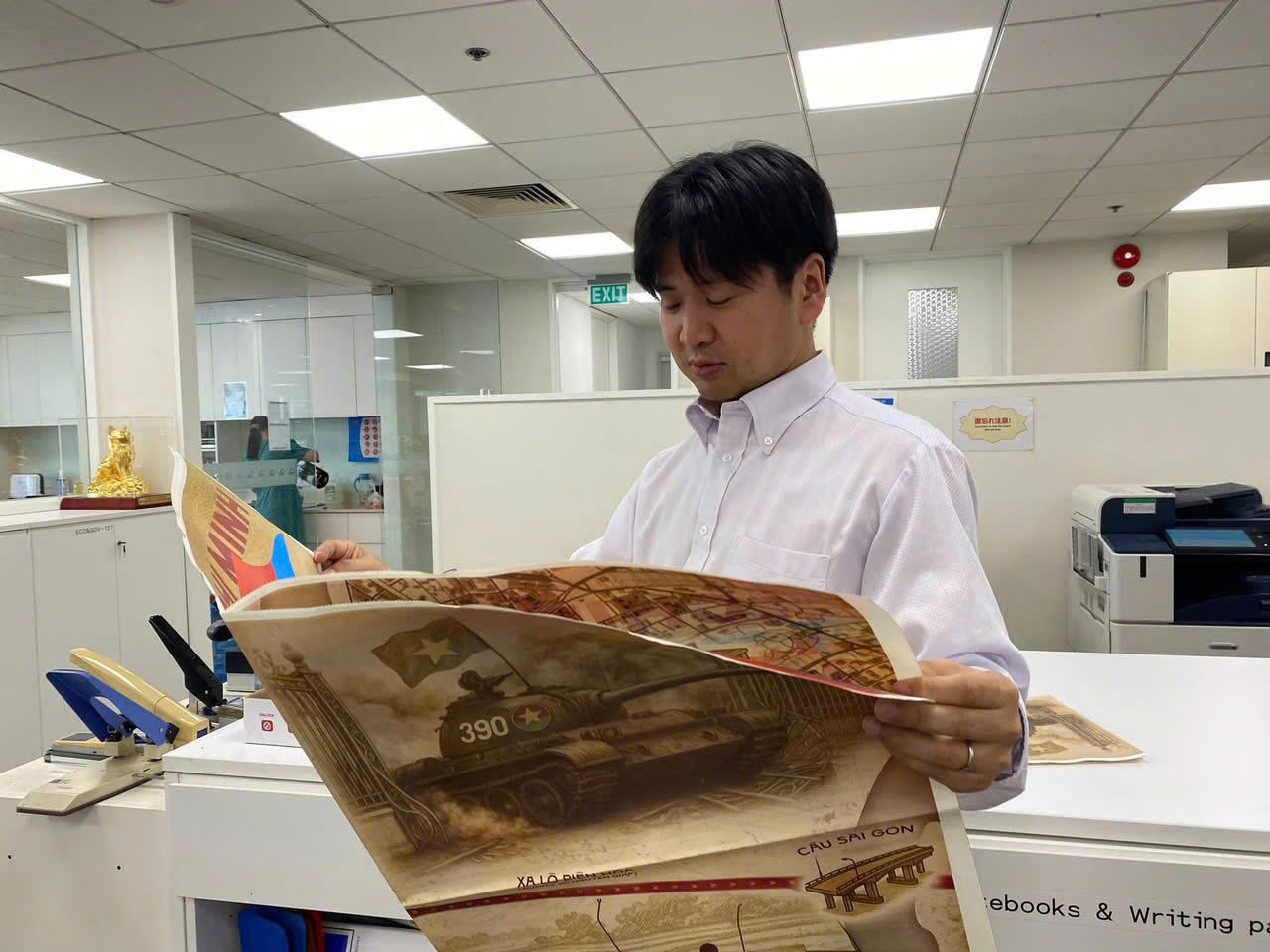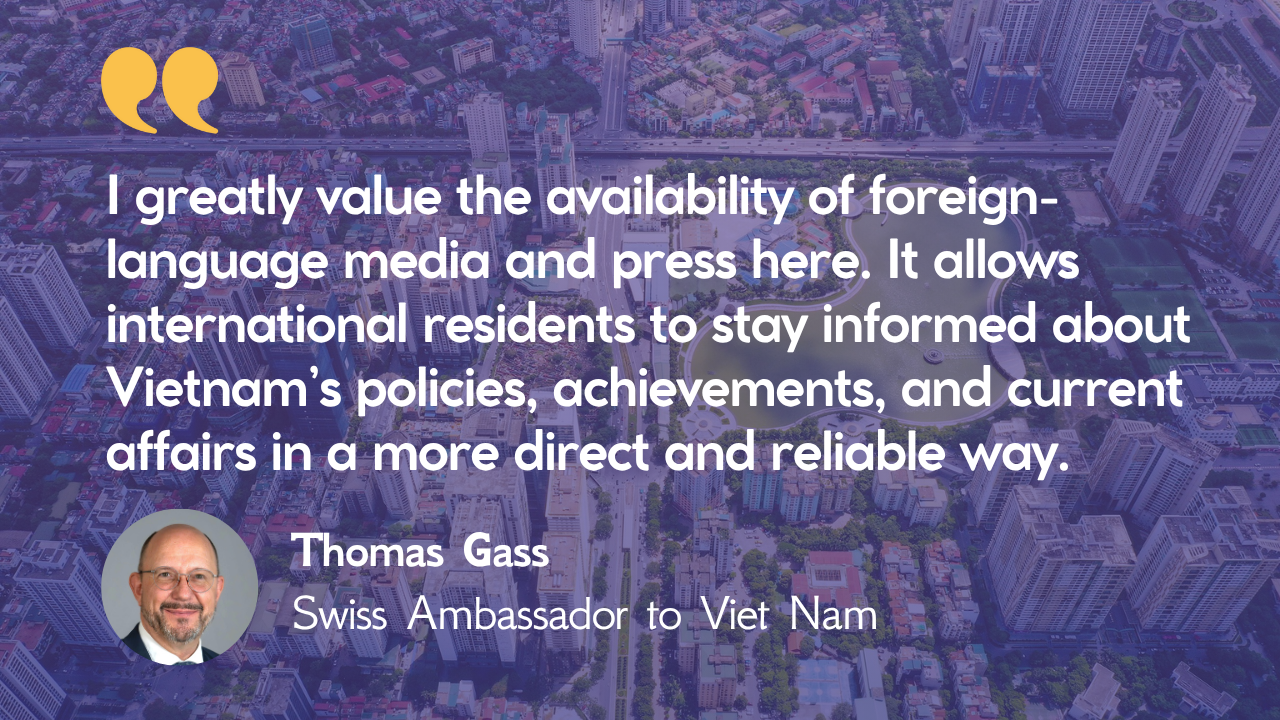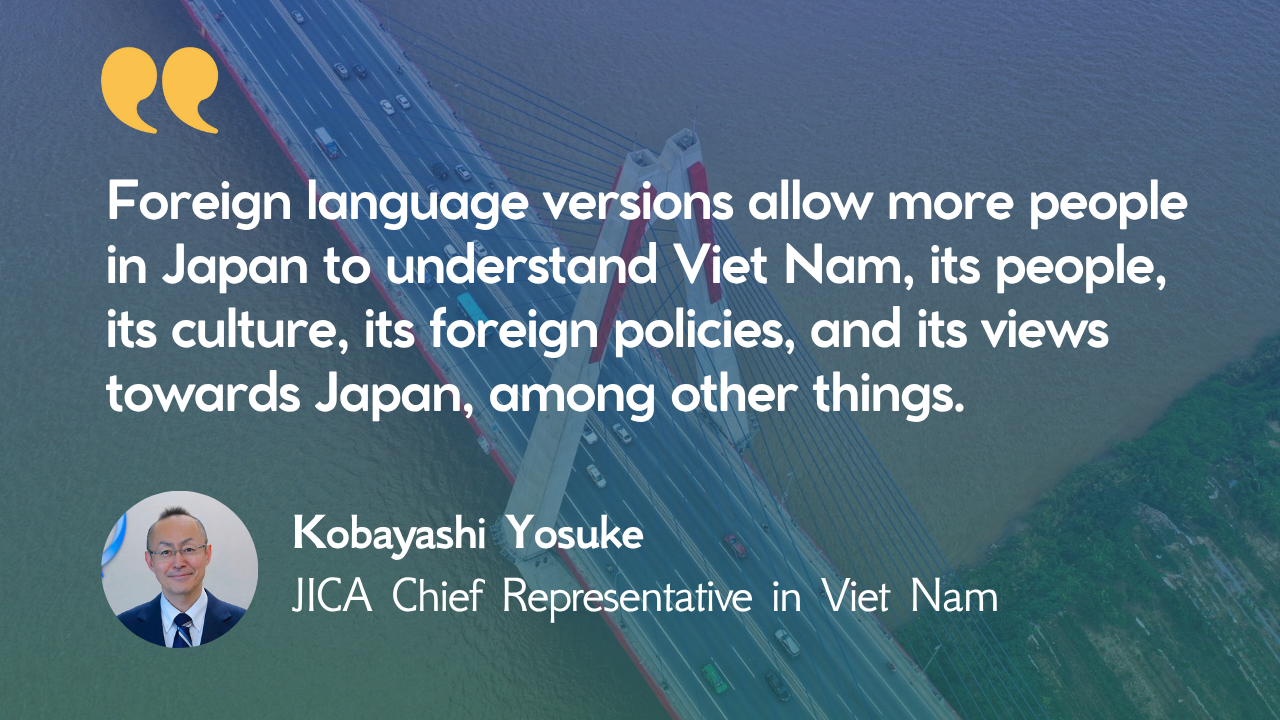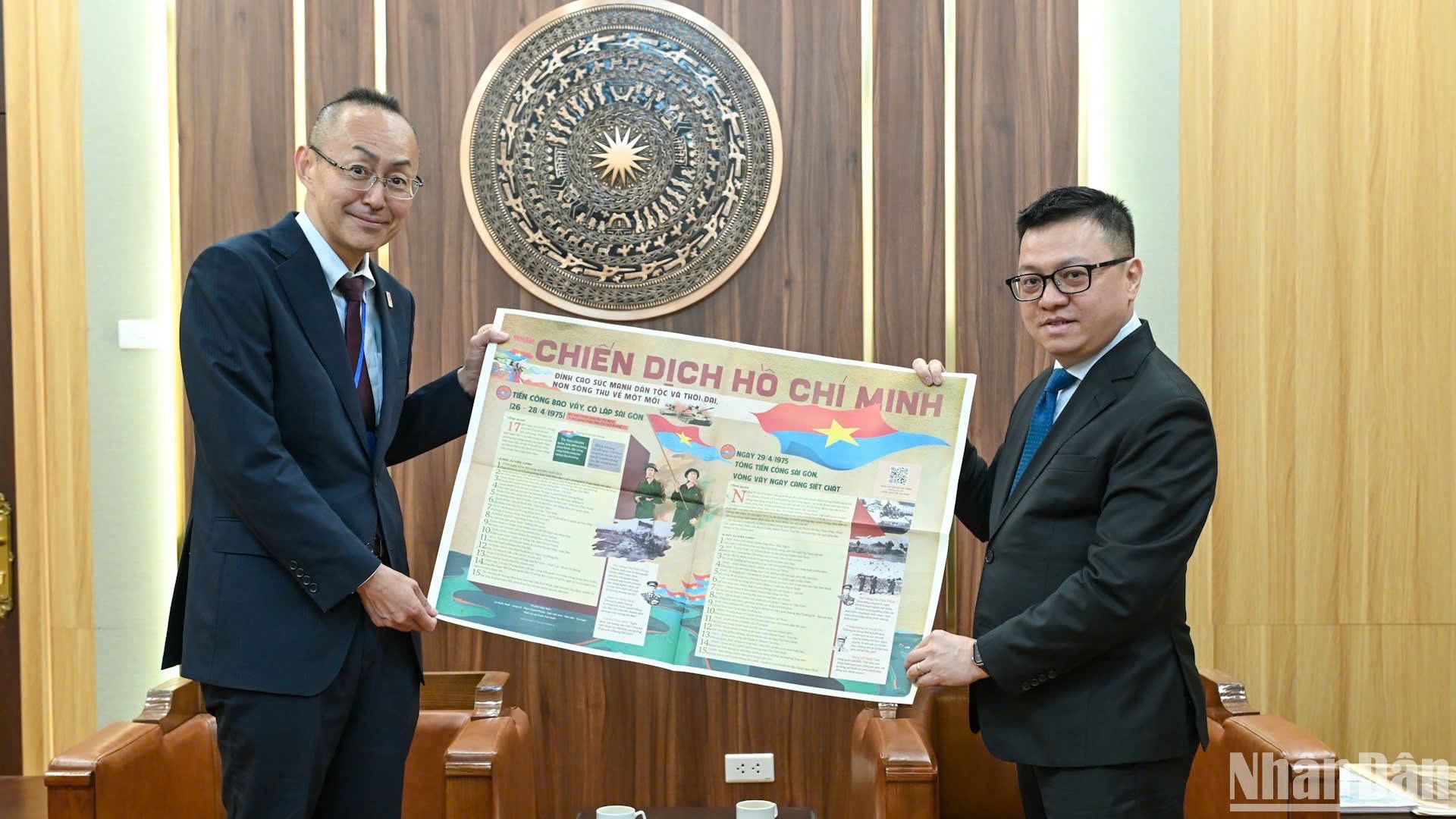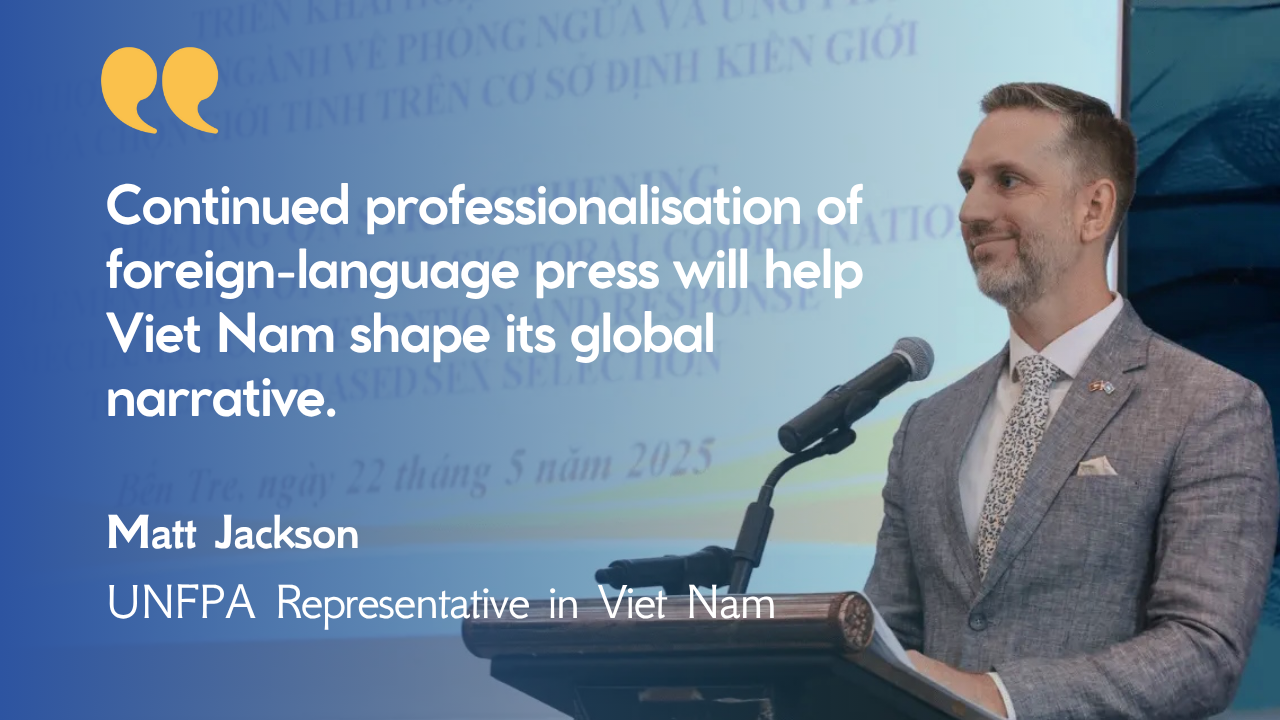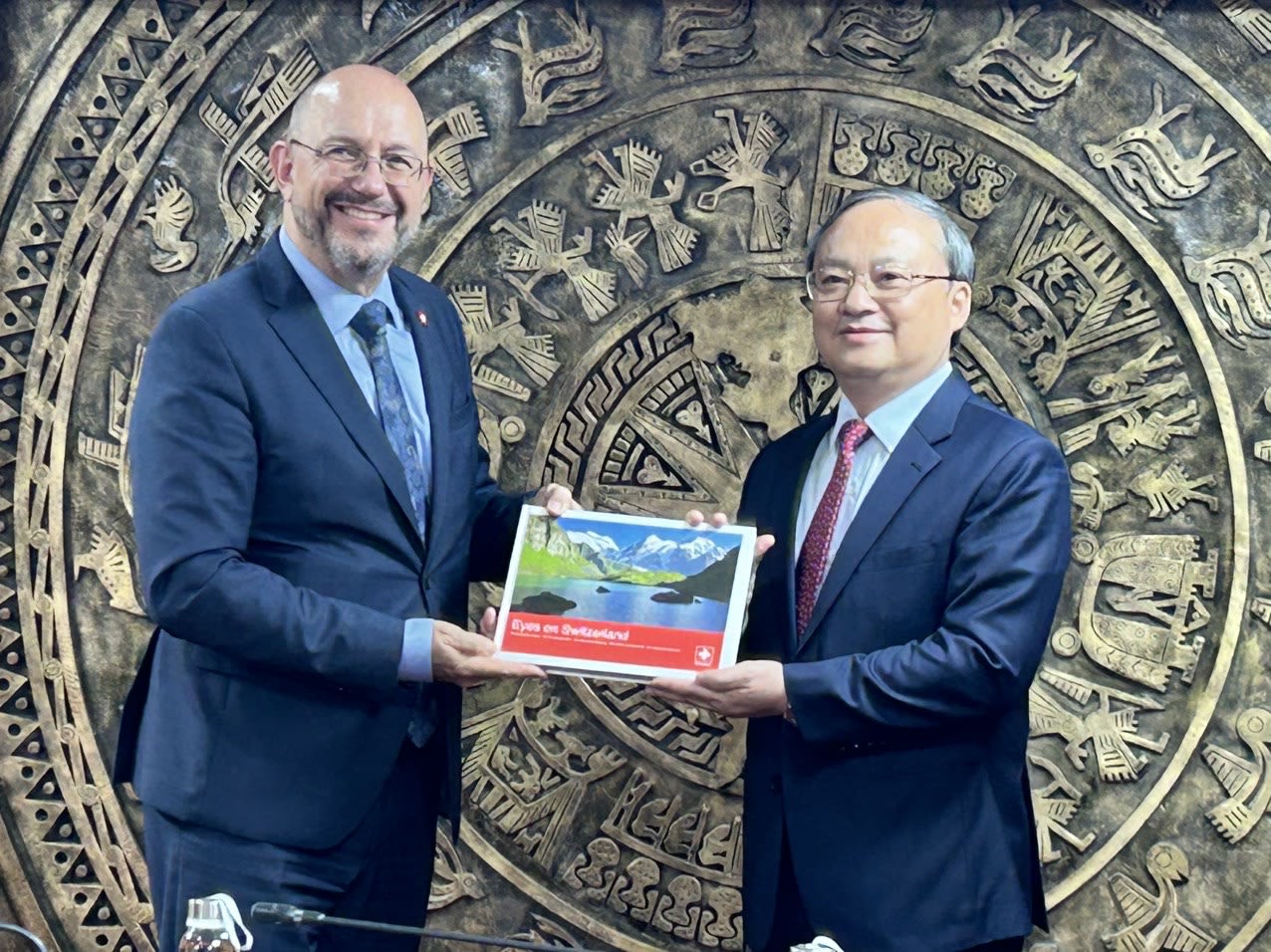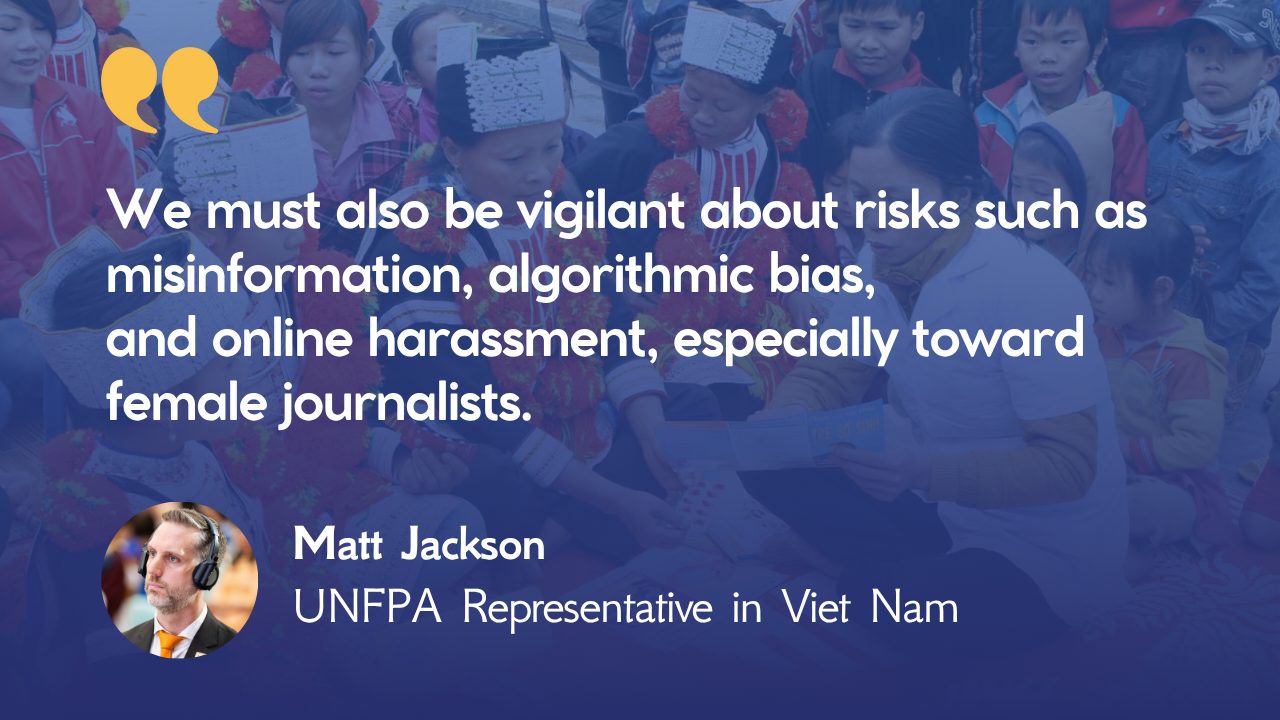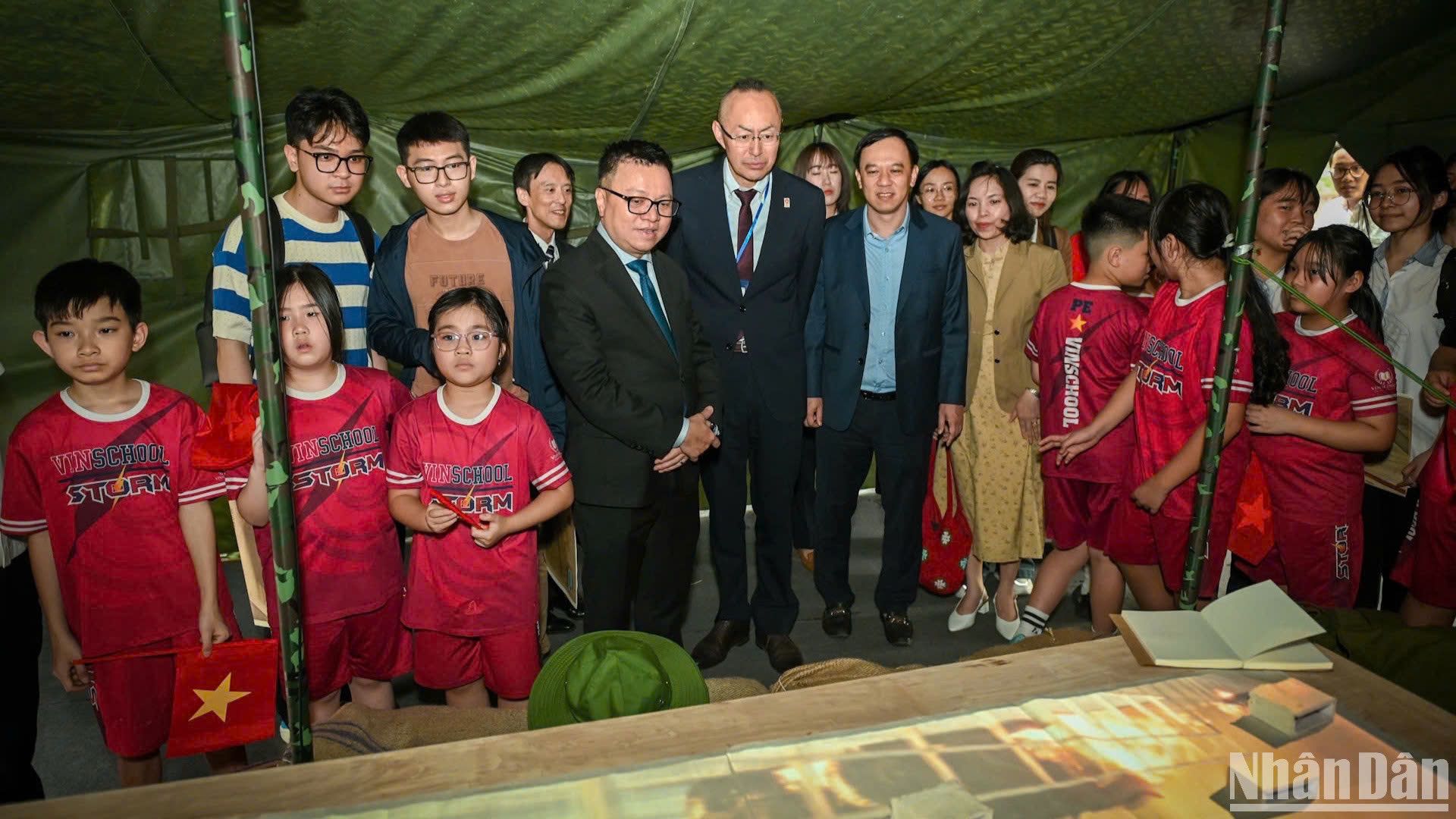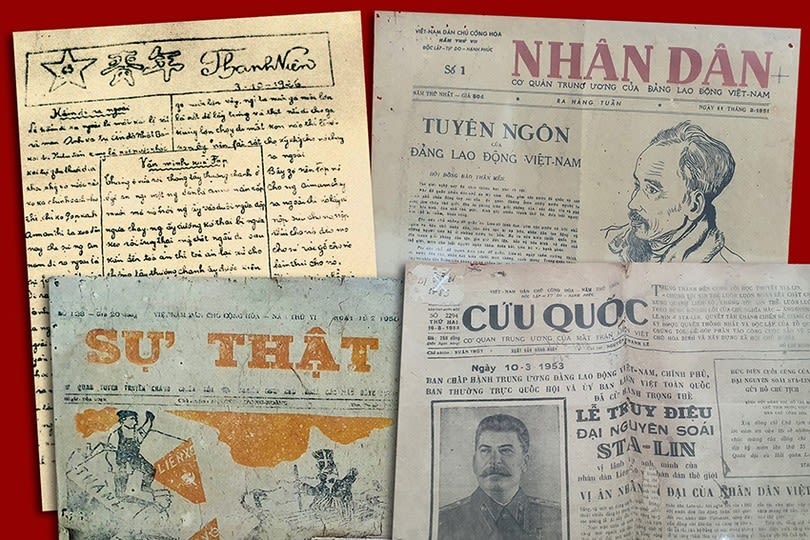Vietnamese Press
through International Lens
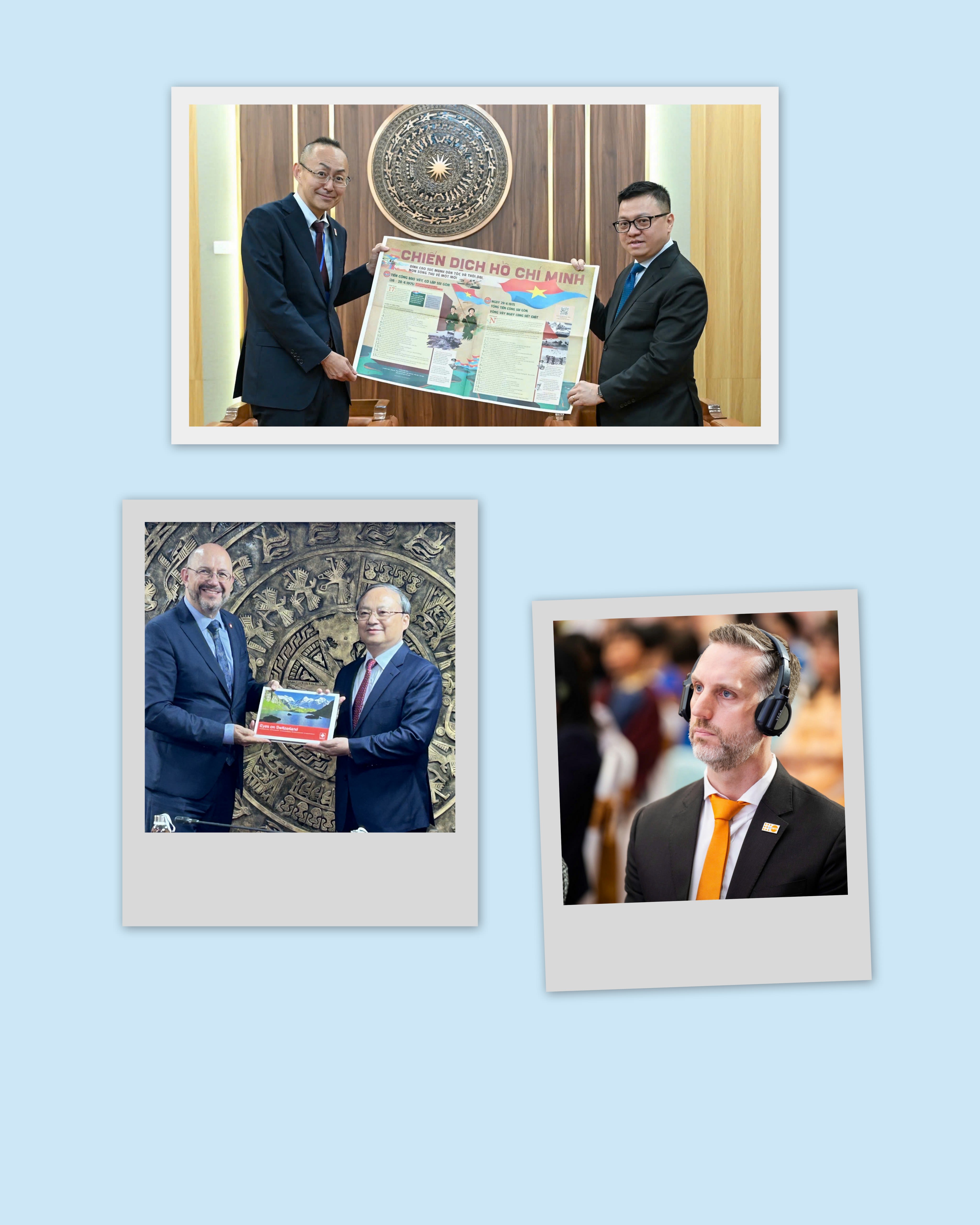
From an international perspective, Vietnamese press is increasingly asserting its importance, not only in providing accurate and timely information to domestic readers but also as an effective tool of external relations work, contributing to elevating the country’s international standing, fostering trust, and building global partnerships.
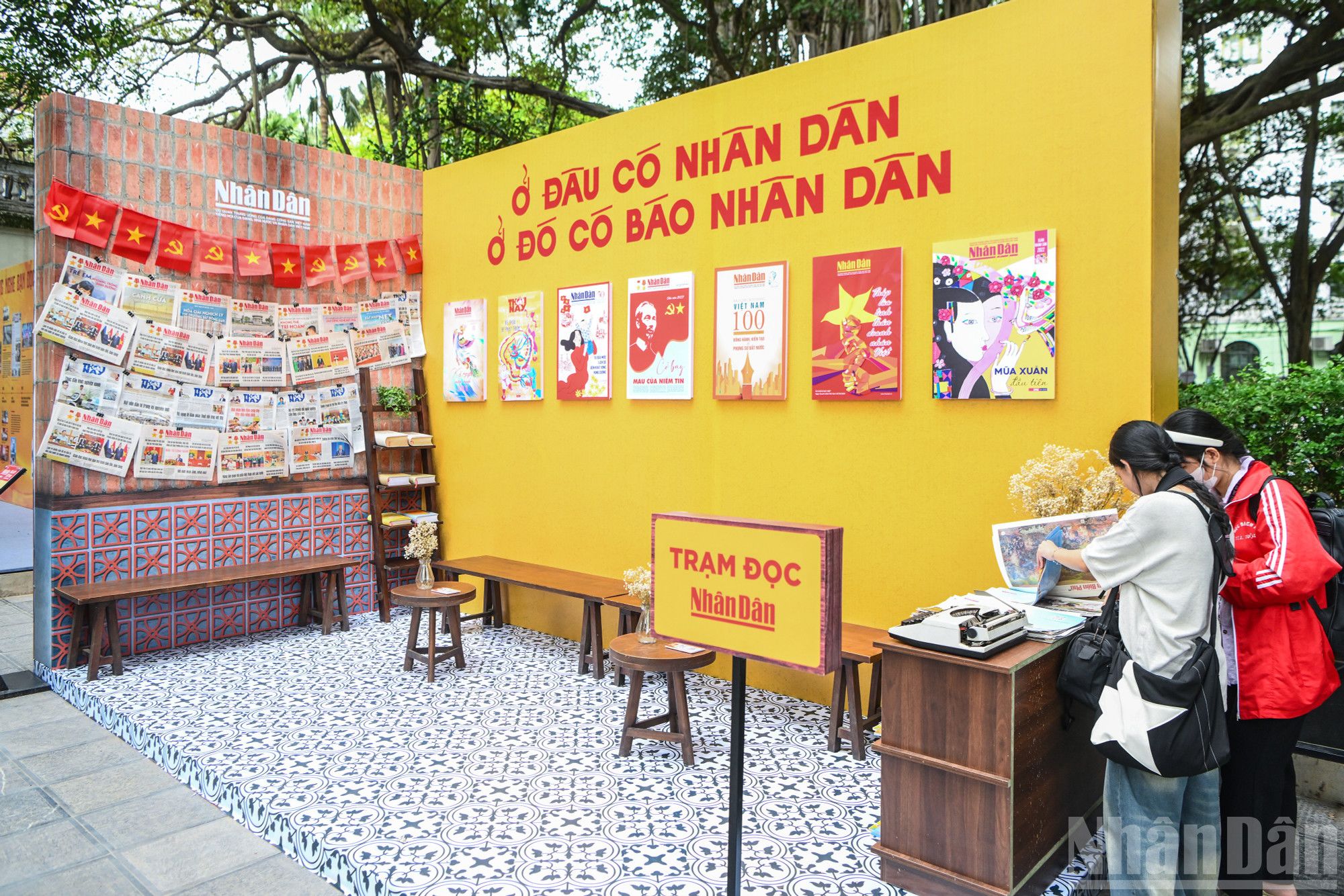
A vital information channel for foreign readers
In a context of globalisation and increasingly deep international integration, information has become a form of “soft power” essential for shaping national image and strengthening international influence.
Recognising this, major Vietnamese press agencies such as the Viet Nam News Agency, Viet Nam Television, the Voice of Viet Nam, and Nhan Dan Newspaper, have actively invested in and developed foreign-language editions in English, French, Chinese, Russian, and Spanish, among others, to strengthen their external relations information work.
This strategic move not only helps the world understand Viet Nam more accurately and thoroughly but also serves the growing demand for official information among foreign residents in Viet Nam and overseas Vietnamese communities.
The development of foreign-language press editions has created a reliable, timely and effective channel through which foreigners living in Viet Nam can better understand the country’s political, economic, social, cultural, and legal context, as well as its foreign policy.
Topics such as institutional reform, foreign investment, education reform, sustainable development, green technologies, and cultural heritage are conveyed in an easy-to-understand and vivid manner in international languages, helping build greater trust and positive sentiment among foreign audiences.
JICA Viet Nam’s staff members explore Nhan Dan Newspaper’s special supplements. (Photo: JICA)
JICA Viet Nam’s staff members explore Nhan Dan Newspaper’s special supplements. (Photo: JICA)
Speaking to Nhan Dan Newspaper, Swiss Ambassador to Viet Nam Thomas Gass noted: “While I regret not being able to read Vietnamese, I greatly value the availability of foreign-language media and press here. It allows international residents like myself to stay informed about Vietnam’s policies, achievements, and current affairs in a more direct and reliable way.”
In addition to foreign-language press editions, Ambassador Gass also praised the effective and increasingly affordable use of modern translation tools and artificial intelligence. This, he said, is very timely, as it supports Viet Nam’s growing engagement with the global community. It aligns well with the country’s aspirations to welcome more international investors, tourists, scholars, and partners as well as to share its story with the world on its own terms.
Sharing the same view, Kobayashi Yosuke, Chief Representative of the Japan International Cooperation Agency (JICA) in Viet Nam, commented: “As my Vietnamese is still poor, I have personally benefited from the foreign language versions of the press. This is true for many of my colleagues in my organisation as well as our partner Japanese organisations working for the development of Viet Nam; the foreign language versions have helped them familiarise themselves with the latest developments of various policies as well as keep track of a wide array of issues related to ODA.”
Looking at the broader picture, he added: “I personally believe that the foreign language versions will play an increasing important role in the age of compounded global crises where cooperation based on mutual understanding between countries and their people is more important than ever. Specifically, foreign language versions allow more people in Japan to understand Viet Nam, its people, its culture, its foreign policies, and its views towards Japan, among other things.”
Editor-in-Chief Le Quoc Minh presents Nhan Dan Newspaper’s special supplement commemorating the 50th anniversary of the Liberation of the South and National Reunification to JICA Viet Nam Chief Representative, Kobayashi Yosuke. (Photo: BUI GIANG/NDO)
Editor-in-Chief Le Quoc Minh presents Nhan Dan Newspaper’s special supplement commemorating the 50th anniversary of the Liberation of the South and National Reunification to JICA Viet Nam Chief Representative, Kobayashi Yosuke. (Photo: BUI GIANG/NDO)
Press contributes to building trust and international partnerships
Commenting on the development of foreign-language press in Viet Nam as a means of enhancing external relations information work, Matt Jackson, United Nations Population Fund (UNFPA) Representative in Viet Nam, described the expansion of foreign-language content as a welcome and strategic advancement.
In today’s interconnected world, the ability to deliver information across language and cultural barriers is essential, not only for enhancing national prestige but also for building trust and global partnerships.
By providing official information to foreigners and the overseas Vietnamese community, Viet Nam is demonstrating a strong commitment to transparency, global integration, and inclusive development.
This also enables development partners such as the United Nations to advance shared goals — from reproductive health and gender equality to youth empowerment and population policy.
“Through bilingual collaboration with the press, we can bring global lessons into a local context, while communicating Viet Nam's achievements to the international community. During my time in Viet Nam, I have witnessed how press releases, articles, social media posts, and reports translated into English, French, Chinese, and more, have served as bridges for communicating Viet Nam’s priorities and innovations,” said Matt Jackson.
“Continued professionalisation of foreign-language press will help Viet Nam shape its global narrative, particularly in fields such as climate diplomacy, technology, health, and population policy.”
Echoing this, Swiss Ambassador to Viet Nam Thomas Gass acknowledged the efforts of Vietnamese press in enabling both domestic and international audiences to access diverse perspectives, thereby fostering deeper mutual understanding.
He observed that international readers are paying increasing attention to Viet Nam, not only for its economic growth, but also for its culture, history, diplomacy, and global contributions.
Swiss Ambassador to Viet Nam Thomas Gass in a working session with VOV President Do Tien Sy. (Photo: The Swiss Embassy in Vietnam)
Swiss Ambassador to Viet Nam Thomas Gass in a working session with VOV President Do Tien Sy. (Photo: The Swiss Embassy in Vietnam)
“The more the Vietnamese media can tell these stories in a way that resonates with a global audience — through foreign-language content, multimedia platforms, and partnerships with international outlets — the more visible and well-understood Viet Nam will become on the world stage.”
Keeping pace with digital era to fulfil mission
Amid the Fourth Industrial Revolution, Vietnamese press has actively innovated to stay in step with the times. Modern information technologies, especially the use of artificial intelligence and social media, have been prioritised by many press agencies to enhance communication effectiveness.
Commenting on this trend, UNFPA Representative Matt Jackson remarked: “Vietnamese press is entering a promising new era driven by digital transformation and emerging technologies including AI, data analytics, automation, and social media integration. This demonstrates a strong commitment among media institutions to modernise and engage new generations of readers, particularly the youth, whose media habits differ from the past.”
“At UNFPA, we’ve seen how technology-enabled press helps deliver essential information on reproductive health, gender-based violence, and population issues to otherwise hard-to-reach communities. For instance, we can reach thousands of young people with scientifically grounded, rights-based messages. However, we must also be vigilant about risks such as misinformation, algorithmic bias, and online harassment, especially toward female journalists,” Jackson warned.
He stressed that digital transformation must go hand-in-hand with safeguards against such harms, ensuring journalistic integrity and inclusiveness. Digital media is also opening space for citizens to raise their voices. Social platforms have become key arenas for youth participation, advocacy, and policy dialogue. When press leverages these platforms with evidence-based, rights-respecting content, the social impact can be profound.
Offering his perspective, Swiss Ambassador Thomas Gass noted: “Press as a profession is undergoing profound transformation. AI and digital tools are reshaping how information is produced, processed, and shared. In many cases, tasks such as writing or translation can now be done more quickly and efficiently with the support of AI.”
However, he added, this also raises the bar for journalists in other areas. Verifying facts, identifying credible sources, and presenting multiple perspectives have become more important than ever.
He commended that Vietnamese media’s efforts to keep up with global trends through digital transformation and innovation are impressive. These investments not only improve communication within the country but also help Vietnam present itself more effectively on the world stage.
Meanwhile, JICA’s Kobayashi Yosuke shared that although he is not an expert in the field, he believes that, if used wisely, information technology, including AI and social media, can bring substantial benefits to both journalists and audiences. He believes that information technology should be used to strengthen and further promote the above-mentioned elements, rather than diminish them.
He noted with surprise that in today’s world, where young people largely seek information via platforms like Facebook, X, YouTube, and TikTok, many events organised by Nhan Dan Newspaper have attracted large numbers of young Vietnamese participants through its publications.
Editor-in-Chief Le Quoc Minh discusses the 3D mapping technology featured in Nhan Dan Newspaper’s special interactive exhibition with JICA Viet Nam Chief Representative Kobayashi Yosuke. (Photo: BUI GIANG/NDO)
Editor-in-Chief Le Quoc Minh discusses the 3D mapping technology featured in Nhan Dan Newspaper’s special interactive exhibition with JICA Viet Nam Chief Representative Kobayashi Yosuke. (Photo: BUI GIANG/NDO)
“I was very surprised and excited to see a long line of young people lining up to visit the 50th Anniversary of Southern Liberation and National Reunification Interactive Exhibition at the Nhan Dan Newspaper office in April this year and also experience the exhibition myself. I was impressed to see young people including foreigners eagerly accessing such information and learned firsthand how effective information technology can be used to widely disseminate information on history,” Yosuke said.
This demonstrates that when press agencies effectively align with the technological trends and audience preferences, even traditional media formats can achieve tremendous impact, while historical knowledge, often seen as dry or complex, becomes vivid and engaging.
Efforts to overcome challenges
As Vietnamese press steps into the digital era amid unprecedented technological advances, it not only seizes new opportunities but also faces complex challenges. These include fierce competition in information delivery, fake news, and misinformation, increasing economic pressures on the media, and changing audience habits. In this maelstrom of information, mainstream press must hold fast to its core values on standards, accuracy, and objectivity, while adopting fresh forms to engage the public.
To thrive in the new era, Vietnamese press must undergo bold innovation in thinking, structure, and technology, while preserving professional identity and ethical standards. Press agencies must adapt quickly, invest strategically, and place people especially professional journalists, at the heart of the digital transformation process. Though demanding, this journey is also a major opportunity for Vietnamese journalism to grow stronger and more professional while continuing to affirm its irreplaceable role in modern society.
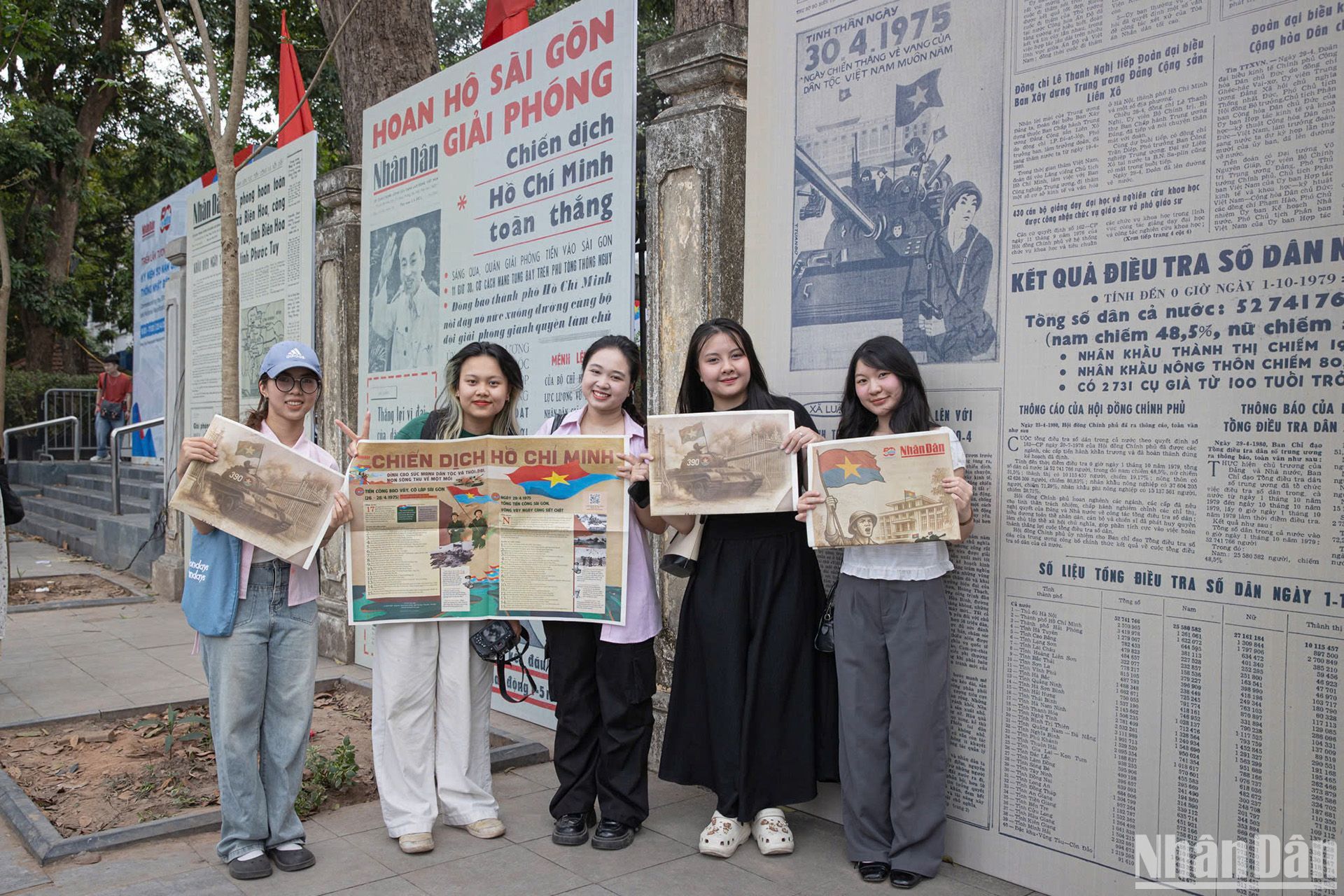
Published: June 21, 2025
Content: Vu Anh, Tuyet Nhung, Bich Lien, Bich Van, Phuong Huyen, Kieu Giang
Design: Hoa Bui
